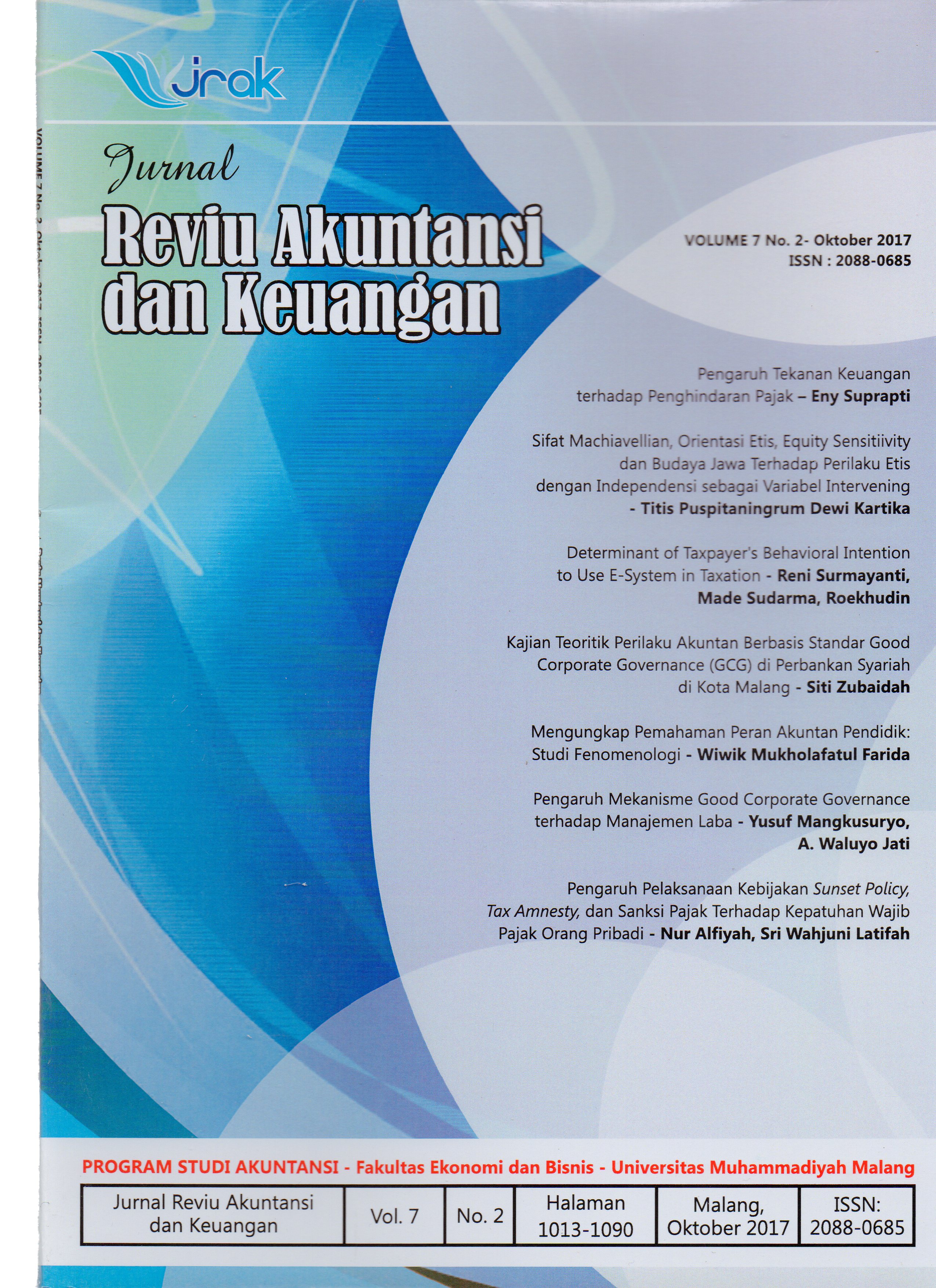PENGARUH TEKANAN KEUANGAN TERHADAP PENGHINDARAN PAJAK
DOI:
https://doi.org/10.22219/jrak.v7i2.15Abstract
This study examines the effect of Growth, ROA, Leverage, Cashflow nagatif and size on tax
avoidance. The testing was held 82 samples. The data obtained from the company’s annual
report website Indonesian Stock Exchange during the period 2016 and analyzed using Multiple
Regresion. The research finding show that ROA negatively affect of tax evaoidance. Other findings indicate leverage positive effect on tax evoidance. ROA is a financial pressure for the company when profitability performance becomes the target that must be achieved and the research
results show the negative direction, it can be stated that the sample company is not in a state of
financial pressure because the average ROA is lower than the interest rate on deposit. Meanwhile, leverage shows a positive influence on tax evasion. This proves that the sample companies aggressively increased the use of external funding so as to increase tax avoidance.
Key words: financial pressure, tax evoidance, triangle fraud theory
Downloads
Downloads
Published
Issue
Section
License

Jurnal Reviu Akuntansi dan Keuangan is licensed under a Creative Commons Attribution-NonCommercial-ShareAlike 4.0 International License.
Authors who publish with this journal agree to the following terms:
- Authors retain copyright and grant the journal right of first publication with the work simultaneously licensed under a Creative Commons Attribution-NonCommercial-ShareAlike 4.0 International License that allows others to share the work with an acknowledgement of the work's authorship and initial publication in this journal.
- Authors are able to enter into separate, additional contractual arrangements for the non-exclusive distribution of the journal's published version of the work (e.g., post it to an institutional repository or publish it in a book), with an acknowledgement of its initial publication in this journal.
- Authors are permitted and encouraged to post their work online (e.g., in institutional repositories or on their website) prior to and during the submission process, as it can lead to productive exchanges, as well as earlier and greater citation of published work (See The Effect of Open Access).










